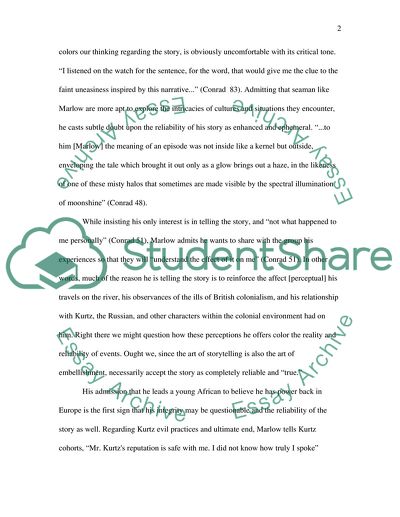Cite this document
(“Heart of Darkness: Narration as Storytelling Essay”, n.d.)
Heart of Darkness: Narration as Storytelling Essay. Retrieved from https://studentshare.org/literature/1563981-english-novel-not-specific-topic
Heart of Darkness: Narration as Storytelling Essay. Retrieved from https://studentshare.org/literature/1563981-english-novel-not-specific-topic
(Heart of Darkness: Narration As Storytelling Essay)
Heart of Darkness: Narration As Storytelling Essay. https://studentshare.org/literature/1563981-english-novel-not-specific-topic.
Heart of Darkness: Narration As Storytelling Essay. https://studentshare.org/literature/1563981-english-novel-not-specific-topic.
“Heart of Darkness: Narration As Storytelling Essay”, n.d. https://studentshare.org/literature/1563981-english-novel-not-specific-topic.


